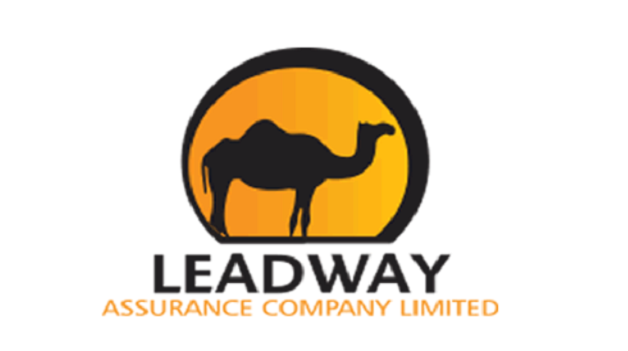E-Financial
Global Heists on ATM Machines Imminent- FBI

America’s Federal Bureau of Investigation (FBI) has warned banks in Nigeria and others across the globe that criminals are gearing up to execute a global bank heist in the coming days.
In a recent confidential alert FBI told international banks that criminals are plotting a concerted global malware attack on cash machines in the next few days.
The FBI issued a warning about a highly choreographed fraud scheme known as an ATM “jackpotting”, or ATM cash-out,” in which crooks hack a bank or payment card processor and use cloned cards at cash machines around the world to take out millions in just a few minutes.
The alert said the agency had procured information indicating an attack was imminent and that it was likely an “unlimited operation,” which uses malware to exploit network access and get customers’ card information at a large scale.

Once the criminals get the card data, they create fraudulent copies using reusable magnetic strip cards (like gift cards) and hit the ATMs.
“Historic compromises have included small-to-medium size financial institutions, likely due to less robust implementation of cyber security controls, budgets, or third-party vendor vulnerabilities,” reads the confidential alert, which was sent to banks last Friday.
“The FBI expects the ubiquity of this activity to continue or possibly increase in the near future.”
The alert urges banks to review their security systems and use two-factor authentication with a physical or digital token.
Other tips include monitoring and limiting administrator and business accounts with the authority to modify typical fraud controls like maximum withdrawal amounts and number of daily ATM transactions.
E-Financial
Leadway Partners Firm to Launch Retail Insurance Product for Women

In line with passion and aspiration of the National Insurance Commission (NAICOM) to achieve financial inclusion among Nigerians especially Nigerian women, Leadway Assurance, has partnered with Wafira Ntaba Limited a marketing firm to launch a bespoken insurance policy for Nigerian women.

The product, Leadway Plan B Insurance policy, comes in simplified and affordable packages for as low as N26,000 per quarter, broadening financial inclusion and income protection for women-led small to medium-sized enterprises and lifestyle protection for women across different social strata in Nigeria.
Speaking at the media launch of the product, Leadway ‘s Director Sales, Retail and Partnership, Kike Fischer, shed light on the market approach for the Plan B product, saying “one uniqueness of the Plan B product is in its single-wide coverage from risks and perils related to auto insurance, healthcare, personal accident, fire, burglary, life insurance and education cutting across its different product packages – SME, Corporate and Premier packages.”
Also speaking, the visioner behind the Plan B Insurance for Nigerian women, Ayona Aguilera Trimnell shared the inspiration behind the products saying, “Plan B is an idea that has been in development for 10 years.
“As I began exploring insurance products aimed at women in other countries, I recognised the need for an insurance product that promotes financial inclusion in Nigeria, specifically for women. I believed we could create something that addresses their unique concerns.
Women need to understand how insurance can alleviate their worries and the benefits of being insured. I have personally enjoyed the advantages of insurance for over fifteen years, and I believe other women should have the opportunity to experience the same benefits.”
She said both partners could simplify the benefits of the plan B insurance product to help even the uneducated, understand and be convinced to secure their future by becoming a policyholder.
According to her, it has been proven and tested that women too buy insurance, but more women need to be aware and get insured.
On the market approach for the Plan B product, she said she was confident that these products would help women of all classes in Nigeria create and protect wealth, recover from economic challenges, pursue their purposes, and lead their families with peace of mind.
E-Financial
Sage Grey Finance Partners with Bank of Industry to Empower MSMEs in Nigeria

Sage Grey Finance Limited has joined forces with the Bank of Industry to provide accessible and affordable financing solutions for Micro, Small, and Medium Enterprises (MSMEs) in Nigeria.
This partnership, announced in Lagos, aligns with the Federal Government’s MSMEs Fund and aims to bridge the $236 billion funding gap faced by small businesses, fostering economic growth and job creation.
Eligible MSMEs can access loans of up to ₦5 million at a competitive 9% annual interest rate, with loan processing completed within five working days.
The initiative also includes SME advisory services to equip businesses with tools for sustainable growth.
Executive Director Jumo Atiba emphasized the critical role of MSMEs in national development, highlighting the partnership’s potential to stimulate entrepreneurship and unlock grassroots economic potential.
This collaboration reflects Sage Grey Finance’s commitment to financial inclusion and sustainable development.
The partnership builds on Sage Grey’s history of impactful initiatives, including a $200 million gas processing plant project and youth empowerment programs.
By addressing the challenges of financial exclusion, this collaboration is set to drive inclusive economic progress across Nigeria.
E-Financial
Four Red Flags Nigerians Ignored until CBEX Crashed- DUBAWA

It has not been a pleasant week for thousands of Nigerians who have again fallen for another money scam.

According to DUBAWA, a West African independent verification and fact-checking project, several persons on various social media platforms have begun to count their losses as CBEX, a popular digital asset trading platform, reportedly wiped out over N1.3 trillion from Nigerian investors’ accounts.
The platform collapsed after funds disappeared from users’ wallets, withdrawals were postponed, and communication channels were locked.
Taiwo Owolabi, a security analyst, recently released an analysis showing how investors’ funds were diverted through funnel wallets and finally into a central wallet, which now holds a total of $857 million in USDT.
The security expert concluded that CBEX was just another Ponzi scheme.
When CBEX promised a mouth-watering 100 per cent return on crypto investments in 30 days, many Nigerians rushed to invest just like they did with the defunct MMM.
However, despite the crash, CBEX has asked some investors to pay $100 and $200 verification fees to access partial withdrawals.
Now that the chips are down, it’s time to ask: “How did we not see this coming?”
Below are four red flags about CBEX that investors ignored.
- No regulatory approval
CBEX operated without registration or approval from the Securities and Exchange Commission (SEC) or the Central Bank of Nigeria.
Still, many Nigerians invested, assuming legitimacy because the platform looked flashy. This has become a pattern, as in previous cases where Nigerians got duped, the platforms were unregistered.
SEC has since warned Nigerians against investing in unregistered online forex and digital asset platforms, saying that operating such businesses without registration is now illegal under the new Investment and Securities Act (ISA).
Lesson: Always verify a platform’s regulatory status before putting your money in.
- Anonymous founders
CBEX’s website and Application did not list identifiable owners or executives. To gain credibility, CBEX masqueraded as a crypto platform, talking about “blockchain,” “trading bots,” and “AI-powered systems.” However, it had no verifiable trades or links to legitimate crypto exchanges. It used tech jargon to mislead its users.
Lesson: Transparency is a minimum requirement. If you don’t know who runs it, don’t trust it.
- Unrealistic returns on investment, withdrawal issues
While there is no ideal return on investments (ROI), excessively high ROIs or ones that appear too good to be true are usually a call for caution.
CBEX promised investors returns of up to 100 per cent in 30 days. That looks like a classic Ponzi red flag.
As seen in the past, these kinds of returns are unsustainable, but they remain effective bait that can appeal to anyone’s greed.
At first, CBEX worked. Users were getting paid even though Owolabi claimed the platform initially used one investor’s money to pay another until it could not.
Just before the crash, many users reported delays in withdrawing their funds. CBEX blamed this on “system upgrades” and “network issues,” which is a tactic common with failing schemes.
Lesson: High, guaranteed returns are a red flag, and consistent withdrawal delays indicate that the system is drying up. That’s usually when the exit strategy begins.
- Influencer endorsements and peer pressure
The Fear Of Missing Out (FOMO) does not respect age, especially when influencers, friends, and families are involved. However, the misuse of trust through misinformation is common in fraud schemes.
CBEX’s biggest marketing weapon was social media hype and word-of-mouth pressure. The platform relied heavily on trust networks.
From WhatsApp statuses to Facebook pages and TikTok videos, CBEX grew viral through a coordinated network of testimonials. People shared real and fake proof of payment screenshots and emotional success stories.
When friends and family members innocently vouched for it, people ignored other red flags and pumped money into the scheme.
Lesson: Social proof is not due diligence. Always investigate platforms independently, even if people you trust are involved.
Conclusion
CBEX’s collapse is not new; unfortunately, it may not be the last. DUBAWA urges investors to adopt a fact-checking mindset when approached with financial opportunities. Scams thrive on ignorance and trust. Our best defence is verification, not hope.
DUBAWA is a West African independent verification and fact-checking project, initiated by the Centre for Journalism Innovation and Development (CJID) and supported by the most influential newsrooms and civic organisations in West Africa to help amplify the culture of truth in public discourse, public policy, and journalistic practice.
It has a presence in Nigeria, Ghana, Sierra Leone, Liberia and The Gambia.

 General News2 days ago
General News2 days agoSanwo-Olu, Others Grace Launch of 50-Bed Hospital in Surulere by Avon Medical

 E-Financial2 days ago
E-Financial2 days agoCBN Pumps in Additional $150m into Forex Market to Safeguard Naira

 E-Financial2 days ago
E-Financial2 days agoSEC Says CBEX, other Unregistered Digital Platforms are Illegal

 Broadcasting2 days ago
Broadcasting2 days agoKONFAM 89.5 FM Hits Airwaves in Lagos Tomorrow

 Telecom2 days ago
Telecom2 days agoMTN, Meta Partner to Enhance Voice and Video Calling Quality

 General News1 day ago
General News1 day agoWorld Bank Announces $800m Support for Nigeria’s CCT Initiative

 E-Financial2 days ago
E-Financial2 days agoKenyan CBN Okays Access Bank Full Acquisition Of NBK

 E-Business2 days ago
E-Business2 days agoSERAP Calls for Withdrawal of Nigeria’s Data Act Amendment























